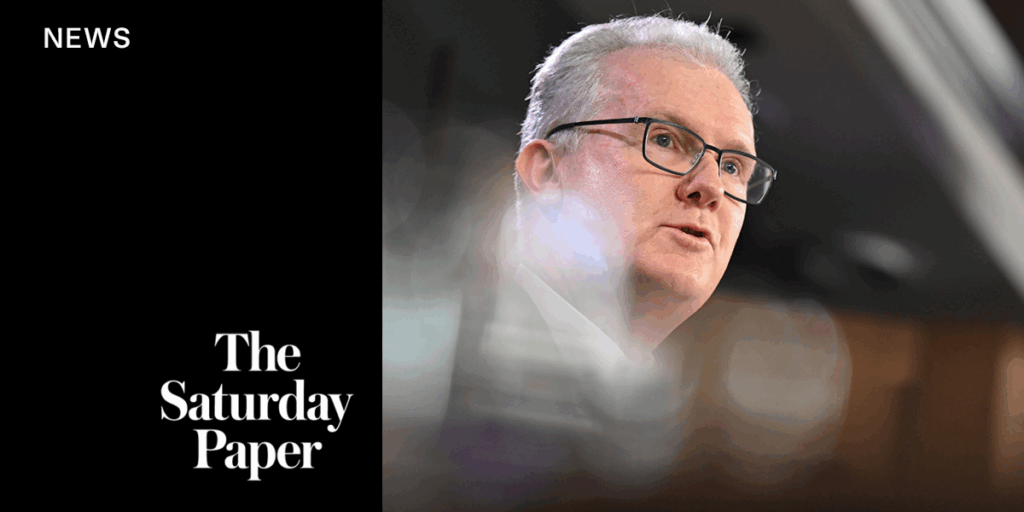
Tony Burke, Australia’s Minister for Home Affairs, is navigating a complex political landscape as he seeks to advance a Labor mission of social inclusion and cohesion. This task comes amid growing anti-immigration sentiments, reminiscent of those that have propelled figures like Nigel Farage in the United Kingdom. In an interview with The Saturday Paper, Burke expressed concern over the emboldened “angry voices” in the country.
Burke noted, “The angry voices are the loudest I can remember them being, [but] I think the central view of Australians hasn’t shifted.” He emphasized that the majority of Australians remain proud of their multicultural identity, even as the loudest dissenters gain prominence.
Rising Tensions Amid Global Conflicts
The minister’s comments come at a time when international conflicts, such as the war in Gaza and the Russian invasion of Ukraine, have exacerbated social and political tensions in Australia. These global issues, coupled with domestic challenges like cost-of-living pressures, housing shortages, and social isolation, have contributed to a fraying societal fabric.
Recent incidents underscore the volatility: anti-immigration marches organized by neo-Nazis, vandalism of synagogues and mosques, and inflammatory graffiti in Melbourne. Burke highlighted that these tensions are not limited to the Israel–Hamas conflict, pointing to a rise in bigotry against the Chinese community and a significant spike in anti-Semitism and Islamophobia.
Policy and Political Challenges
Burke, who also holds the portfolios for immigration, citizenship, cyber security, and the arts, addressed these issues at the National Press Club in Canberra. He reflected on his efforts over the past year and three months to reform the home affairs portfolio, which has been under scrutiny following a 2023 High Court ruling and the release of the “NZYQ” indefinite detention cohort.
Despite these challenges, Burke has managed to quell negative immigration narratives, with the Coalition shifting focus in parliamentary debates. At the National Press Club, he faced no questions about a $408 million deal to deport detainees to Nauru, instead focusing on legislative tools to enhance public safety and social cohesion.
“It’s impossible to have a civil and decent argument about immigration in a fact-free way,” Burke asserted, criticizing opponents who exploit immigration issues for political gain.
Immigration and Social Cohesion
Burke’s approach to immigration emphasizes public safety and social cohesion. He has directed his department to consider community impact when processing visa applications, a stance underscored by the High Court’s recent support for his decision to deny a visa to American activist Candace Owens. This decision, based on Owens’ controversial views, was upheld as not infringing on freedom of speech.
Burke’s actions reflect a broader strategy to combat hate speech, including the establishment of Special Envoys to Combat Islamophobia and Anti-Semitism. He argues that these measures send a clear message against religious bigotry, which has historically gone unaddressed under existing laws.
Political Debate and Future Directions
The debate over Australia’s immigration levels is intensifying, influenced by political dynamics in the United States and the UK. Conservative figures like Andrew Hastie and Jacinta Nampijinpa Price are vocal in this debate, with Hastie expressing concerns about Australians feeling like “strangers in our own home.”
Burke challenges such rhetoric, urging opponents to specify which immigration areas they wish to cut. He attributes recent spikes in migration numbers to the post-pandemic reopening of borders, particularly with the influx of overseas students, but notes a 40% decline from peak levels.
Housing shortages and related economic pressures further complicate the immigration debate. The Albanese government is investing $43 billion in housing initiatives, yet faces criticism for slow progress. Burke blames opposition parties for delaying legislation aimed at increasing housing supply, emphasizing the need for action to alleviate housing stress.
Opposition leader Sussan Ley has attempted to moderate immigration rhetoric, denouncing extremism and advocating for unity. As a migrant herself, Ley acknowledges the fraying social cohesion and calls for leadership to address these issues.
In a symbolic gesture, Burke recently welcomed a refugee from Gaza at Sydney Airport, reinforcing his commitment to fostering a welcoming environment. He stresses the importance of ensuring that all Australians feel safe and included, countering the influence of divisive voices.
“For people who are feeling isolated when they hear the angriest voices, they need to know that the majority of Australia is actually with them,” Burke stated, emphasizing the significance of promoting messages of welcome and inclusion.
As Australia navigates these complex issues, Burke’s policies and rhetoric aim to balance public safety, social cohesion, and the nation’s multicultural identity. The path forward will require careful management of immigration policies and continued efforts to bridge societal divides.






